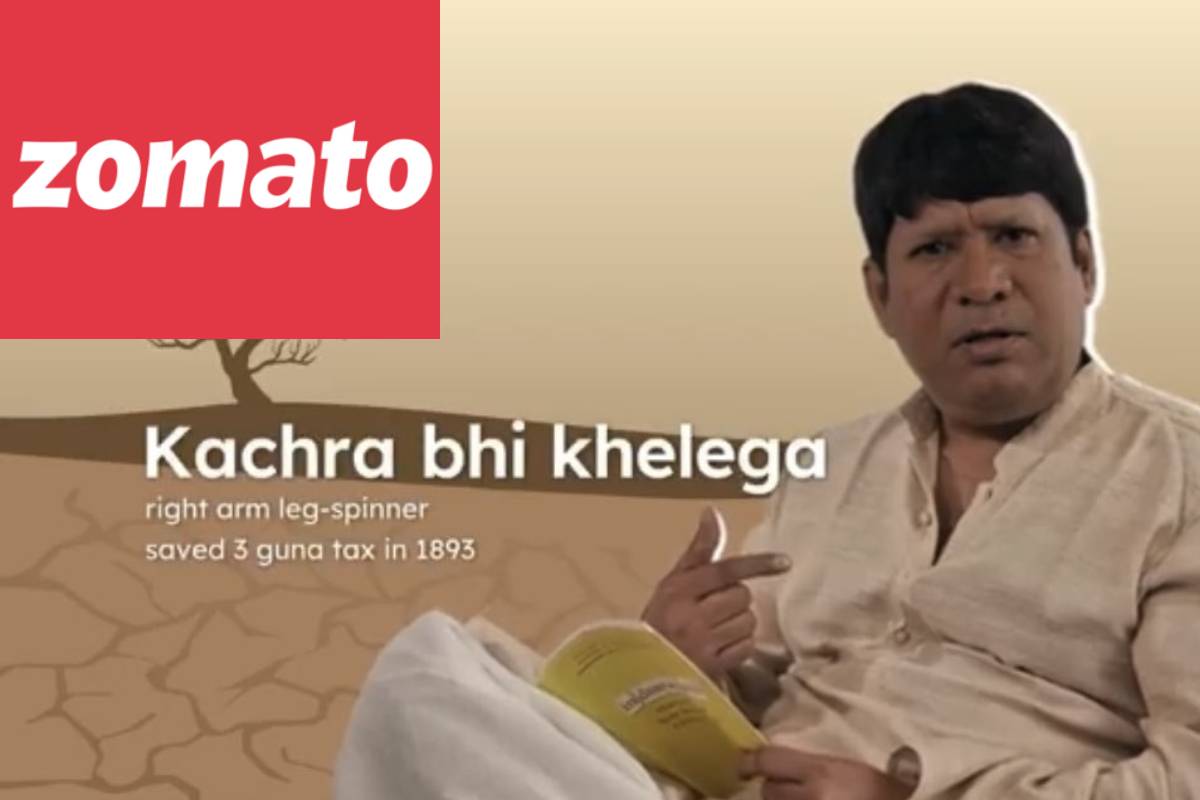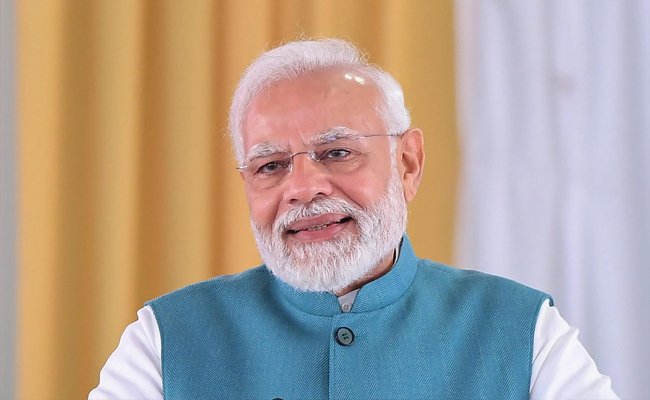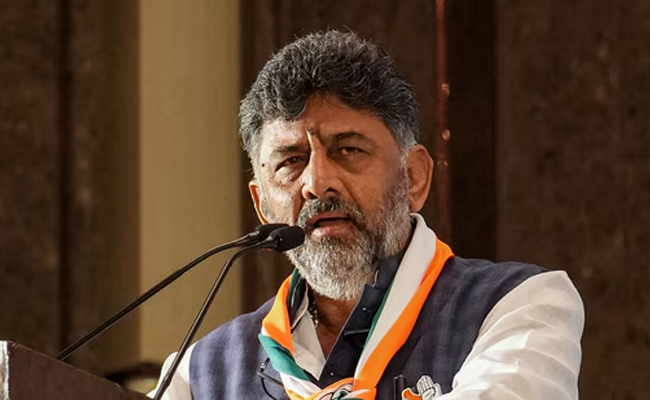New Delhi (PTI): Apologising for unintentionally hurting sentiments, restaurant aggregator Zomato on Thursday withdrew an ad after it came under fire for depicting the actor who played the Dalit character Kachra in the film "Lagaan" as items made of recycled waste.
The ad, which draws a link between the character Kachra with 'kachra', the Hindi word for garbage, was aired on World Environment Day on June 5.
As ire grew and the ad came under attack on social media for being casteist, the company issued an apology from its official Twitter handle and said the intent was to "spread awareness about the potential of plastic waste and benefits of recycling in a humorous way".
"Unintentionally, we may have hurt the sentiments of certain communities and individuals. We have taken down the video," it said.
The ad, aiming to show the food delivery company's recycling efforts, was termed "disgusting", "blatantly casteist", and "extremely insensitive" by netizens on Twitter. "Masaan" director Neeraj Ghaywan, filmmaker Madhurita Anand and Dalit historian Karunyakara Lella were among those who spoke out.
In the nearly two-minute ad, actor Aditya Lakhia, who played the character in the 2001 hit film, is depicted as a lamp, paper, paperweight, watering can, and different types of jackets -- the accompanying text detailing how much recycled 'kachra' was used to make each item.
The company in its now deleted ad on YouTube also claimed it has "recycled 20 million kg of plastic kachra so far".
"Zomato voluntarily recycles more than 100% of the plastic used to package orders, and keeps it out of landfills. This 20 million kg of plastic waste, recycled in FY 23 under our 100% plastic-neutral deliveries initiative, can be turned into many items of immense value. We believe in the power of recycling, and kachra the best spinner in the entire British Raj does as well," the description of the ad read.
Discussing the controversial ad campaign, communications strategy consultant Karthik Srinivasan said Zomato did not think adequately about making the character perform "seemingly dehumanising and menial tasks".
"There's a context to Kachra's character in 'Lagaan', and within the larger spectrum of commercial entertainment in India, on how castes are portrayed, and how Dalits, in particular, are portrayed or stereotyped.
"Coming from that angle, to see the character perform seemingly dehumanising and menial tasks -- even if he is performing them figuratively, as 'waste' and not his Lagaan character per se -- made the ad seem very awkward," Srinivasan told PTI.
He added that Zomato attempted to mine a "kind of sly humour" from the name for waste upcycling/recycling.
The video was slammed online for its seemingly casteist overtones.
"#Kachra from #Lagaan was one of the most dehumanised voiceless depictions of Dalits ever in cinema. @zomato has used the same character and made a repulsive #casteist commercial. A human stool? Are you serious? Extremely insensitive," Ghaywan wrote on Twitter.
Filmmaker Madhurita Anand wrote in reply to Ghaywan's tweet: "That is just so offensive. One has to wonder who these people are who created the advert, approved it and put it online without once thinking about it."
Dalit historian and writer Karunyakara Lella also hit out at Zomato for its "Dalit phobic" advertisement.
"Why #Zomato is insensitive to Dalit sentiments? Why it takes liberty to hurt Dalit life by humiliating Dalit Identity? #BoycottZomato for #DalitPhobic #casteracist advertisement," Lella wrote.
Another Twitter user, Sana Satpathy, said Zomato is "beyond disgusting" and its marketing head should be fired immediately. She used the hashtag #BoycottZomato and called for a public apology.
The food delivery company has found itself on the wrong side of marketing in the past as well.
In 2017, an outdoor ad campaign in major cities including Delhi, Mumbai and Bengaluru showed Hindi expletives "MC, BC" as abbreviations for mac n' cheese and butter chicken.
The company later withdrew the ad after backlash on social media.
In 2022, Zomato pulled down an advertisement featuring actor Hrithik Roshan who was shown to be craving for a "thali" (food platter) in Ujjain so he ordered it from "Mahakal".
Priests of the famous Mahakaleshwar temple in Madhya Pradesh objected, claiming that it offended Hindu sentiments and demanded its withdrawal. Madhya Pradesh Home Minister Narottam Mishra had issued directives to the police to look into the controversy.
The company later apologised clarifying that the "Mahakal" reference was for a restaurant and not the temple.
The character Kachra in "Lagaan" is a polio-affected Dalit. When Aamir Khan's character Bhuvan insists on adding him to the cricket team - the central theme of the film -- after spotting his spinning skills, upper caste members openly reject the idea as he is an "untouchable". However, he ends up playing a crucial role in the cricket match.
This is horrible @zomato. And very stupid in this day and age! We should all boycott @zomato unless they apologize in a big way! https://t.co/QM59GwWUNL
— Aseem Chhabra (@chhabs) June 8, 2023
Let the Truth be known. If you read VB and like VB, please be a VB Supporter and Help us deliver the Truth to one and all.
Gorakhpur (PTI): A hospital employee was booked for allegedly sexually assaulting a woman in the pretext of an ultrasound test here in the district women's hospital, police said on Saturday.
According to the complaint, the woman, a resident of the Gulriha area, visited the district women's hospital on Thursday morning for an ultrasound test.
She was directed to a room, where Abhimanyu Gupta was conducting ultrasounds. When her turn came, the accused allegedly stared at her and told her to remove all her clothes, claiming it was necessary for the test and that a massage would also be required, she said.
ALSO READ: UP: Girl kidnapped, raped multiple times over 25 days; accused held
The woman alleged that once she complied, the accused began making obscene advances and tried to force himself on her. When she screamed, he allegedly gagged her, abused her and threatened to kill her before pushing her out of the room.
She said her complaints within the hospital went unheard, forcing her to approach the police.
Taking cognisance of the complaint, the hospital administration constituted a three-member inquiry committee, officials said.
Senior consultant (paediatrics) Dr Jay Kumar said, "The woman has levelled serious allegations against a staff member. Senior officials have been informed, and a departmental inquiry is underway. Strict action will be taken if the charges are proved."
Kotwali Station House Officer Chatrapal Singh said a case has been registered, and efforts are on to nab the accused.





